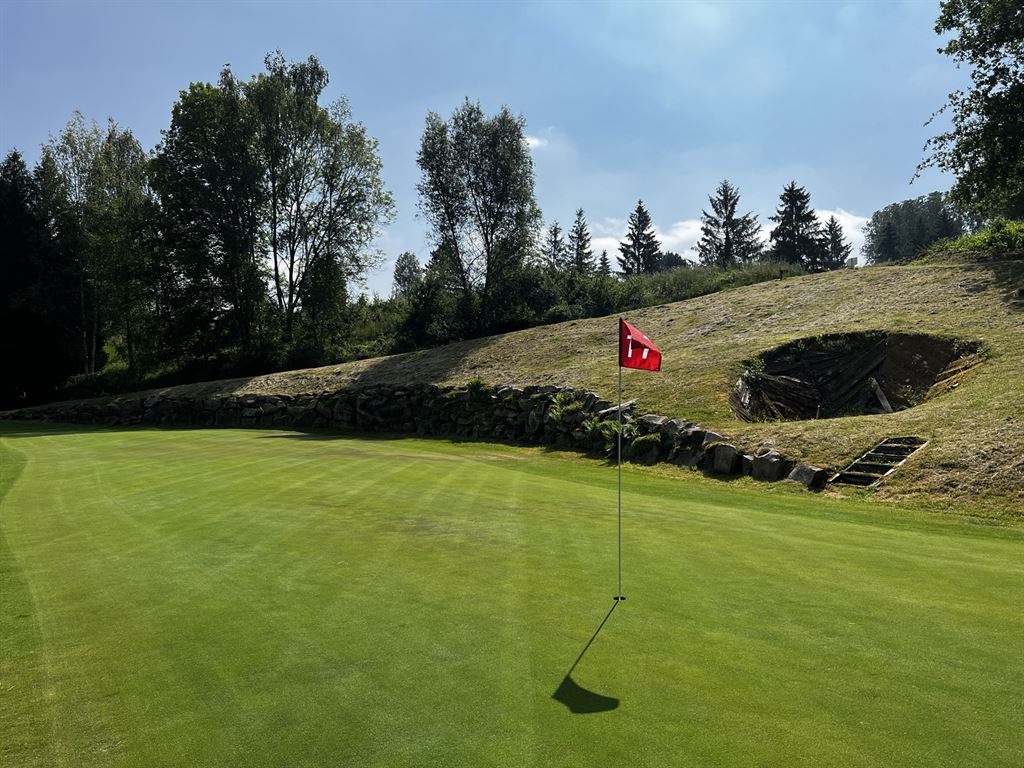Golf Courses for Sale in France: Complete Guide for Buyers and Sellers
France, with its picturesque landscapes and rich culture, is a favorite country for golf enthusiasts. Golf courses for sale in France offer a unique opportunity not only for investors, but also for sports lovers who want to own a place to relax. This article explores the essential aspects of buying and selling golf courses, providing practical advice for sellers and buyers interested in these unique properties.
The Golf Course Market in France
1. A Growing Trend
The golf course market in France has experienced significant growth in recent years. The growing interest in golf, combined with the increase in sports tourism, has led to increased demand for these properties. In addition, courses located in tourist regions, such as the Côte d'Azur or the banks of the Loire, are particularly sought after.
2. Characteristics of Golf Courses
Golf courses vary greatly in size, design and location. They can range from small nine-hole courses to sprawling 18-hole championship complexes, often accompanied by clubhouses, restaurants, and other facilities. Location plays a crucial role in enhancing the value of a course, as a picturesque setting can significantly increase its appeal.
Why Invest in a Golf Course?
1. Potential Profitability
Investing in a golf course can be profitable. Well-managed golf clubs can generate revenue through membership fees, green fees, events, and the sale of related products and services. A well-located course can also attract tourists, thereby increasing revenue.
2. Prestige Value
Owning a golf course confers a certain prestige. This can also serve as a platform for social and professional events, promoting networking and business opportunities. A well-maintained golf course can also improve the value of surrounding properties.
3. Tax Advantages
Investments in sports infrastructure can benefit from various tax incentives. Depending on current legislation, certain operating and maintenance costs may be tax deductible. Homeowners should consult a tax expert to fully understand these benefits.
The Steps to Selling a Golf Course
1. Property Valuation
The first step to selling a golf course is to conduct a thorough evaluation. This includes examining infrastructure, land quality, and facilities. It is recommended to use commercial real estate experts and appraisers who specialize in recreational properties to obtain an accurate estimate of the course value.
2. Updates and Improvements
Before putting the course up for sale, it may be wise to invest in improvements. This may include renovation of facilities, maintenance of grounds, and improvement of services offered. A well-maintained and attractive course will be more likely to attract buyers.
3. Choice of Real Estate Agency
Working with a real estate agency specializing in commercial and recreational properties is essential. These agencies have in-depth market knowledge and can help you set a competitive price, write impactful ads, and manage the sales process.
Tips for Sellers
1. Highlight the Assets of the Course
When you prepare to sell your course, it is important to highlight its strengths. Whether it's exceptional design, breathtaking landscapes, or modern amenities, every detail can make the difference. Investing in professional photography and virtual tours can also increase the appeal of your offering.
2. Prepare a Complete File
A complete file on the route, including information on history, revenue generated, operating costs, and work carried out, can strengthen the credibility of the offer. This allows potential buyers to project themselves and better understand the value of the investment.
3. Flexibility during Visits
Being flexible during viewings is essential to attracting potential buyers. Offering varied tour times, including weekends, can maximize interest in your course.
The Steps to Buying a Golf Course
1. Search and Selection
For buyers, the search for a golf course should begin with a clear definition of their needs. What are the important criteria? Do they prefer an existing course or land to be developed? Location, size, and facilities should be carefully considered.
2. Visit and Evaluation
When visiting several courses, it is crucial to evaluate the general condition of the infrastructure, the quality of the land, and the services offered. It may be a good idea to hire a golf expert to evaluate the playability and design of the course. This can help identify areas for improvement and anticipate future costs.
3. Negotiation and Purchase
Negotiating to purchase a golf course may be different than negotiating other properties. It is essential to consider financial aspects, such as potential income and maintenance costs. Working with an experienced real estate agent can make the process easier and ensure the buyer gets a good price.
Tips for Buyers
1. Understand the Regulations
Golf course buyers should be aware of local regulations regarding the operation of such properties. This includes operating permits, environmental requirements, and maintenance obligations. Finding out about these aspects from the start can avoid unpleasant surprises.
2. Evaluate Development Potential
It is important to consider the development potential of the course. Buyers should consider whether there are opportunities to expand, build other facilities, or host events. This can influence the future profitability of the investment.
3. Budget for Works and Maintenance
The costs of operating a golf course can be high, including course maintenance, infrastructure, and services. Buyers should establish a realistic budget that includes these costs, as well as a contingency fund for possible improvements.
The Challenges of Managing a Golf Course
Owning a golf course comes with significant management responsibilities. This includes membership management, event organization, and grounds maintenance. Effective management is crucial to ensure the profitability and smooth running of the establishment.
1. Member Management
Creating a community of engaged members can be a major asset for a golf course. Offering attractive membership programs and hosting social events can promote member retention and attract new golfers.
2. Events and Tournaments
Organizing events and tournaments can generate additional revenue and increase the visibility of the course. Partnerships with local businesses can also enable sponsored events.
3. Grounds Maintenance
Regular maintenance of the fields is essential to guarantee the quality of play. Investing in modern maintenance equipment and hiring qualified staff can contribute to the satisfaction of members and visitors.
The Role of Specialized Real Estate Agencies
1. Market Expertise
Real estate agencies specializing in golf courses have unique market expertise. They can provide valuable advice on market trends, property values, and buyer expectations.
2. Network of Buyers and Sellers
These agencies also have a network of potential buyers and sellers. Their ability to connect interested parties can make the sales and buying process easier.
3. Personalized Support
The personalized support offered by these agencies ensures that each client receives the necessary advice and support throughout the process. Whether it's a first sale or a new purchase, their experience is a valuable asset.
Buying or selling a golf course in France is an exciting business that requires careful preparation and an understanding of the specifics of the market. Whether you are a seller looking to add value to your property or a buyer looking for a unique investment opportunity, working with specialist real estate agencies can make the process much easier.
By keeping in mind the tips and recommendations outlined in this article, you will be better prepared to navigate the world of golf courses for sale in France. Whether you are looking to sell an existing course or acquire your own piece of paradise for golf enthusiasts, the French market is full of opportunities to explore.
Follow “ ProprietesDeCharme.com ” on YouTube Facebook Twitter LinkedIn Instagram Pinterest




